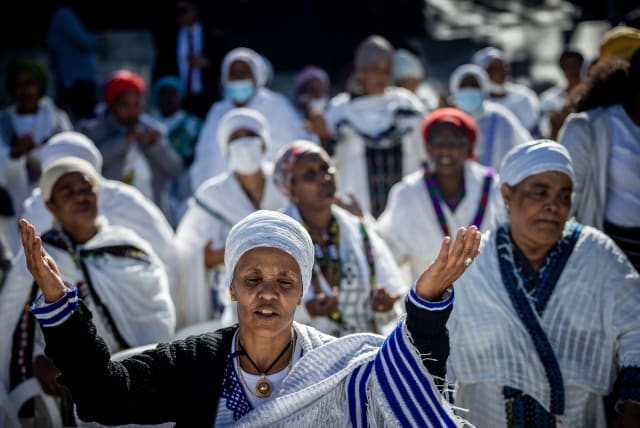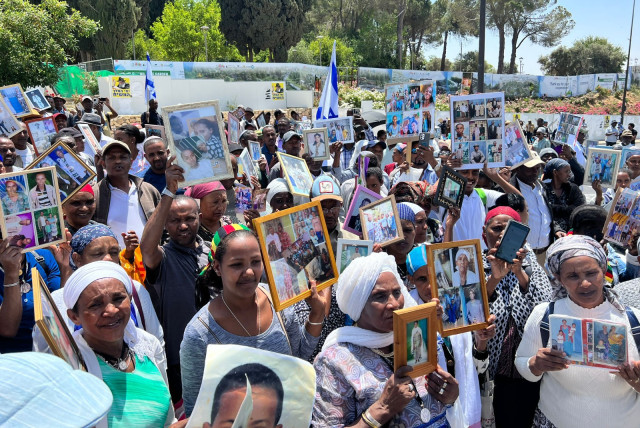Comptroller: Wages of Ethiopian Israelis 33% lower, only 67% of funds for integration plan utilized

The proportion of Ethiopian students with degrees from academic institutions compared to their proportion in the population is the smallest out of all Jewish populations.
There are significant gaps between the Ethiopian population in Israel and its general Jewish population in all fields of life more than 40 years after the large waves of immigration from Ethiopia, according to a comptroller’s report on municipalities released Tuesday.
Among other things, the report looked at the “New Way” plan to improve integration of Ethiopian immigrants, and found that only 67% of the budgets allocated for this plan were utilized and that the plan’s goals were therefore not met.
The monthly average wage of Israeli Ethiopians is 33% lower than the average wage of all other Jewish Israelis, for those born between 1978 and 1983, the report found.
Only slightly more than half (54%) of Ethiopian high school students finishing 12th grade in 2022 were eligible for matriculation certificates that meet university standards compared with three-fourths (75%) for the general Jewish-Israeli population.
The proportion of Ethiopian students with degrees from academic institutions compared to their proportion in the population is the smallest out of the entire Jewish populations, the comptroller found.
In 2022, the proportion of Ethiopian high school students taking the highest level of mathematics matriculation exams was only half of the general Jewish population (8.5% compared to 17%), and in Kiryat Malachi, where 10% of Jewish students learn the highest level, no Ethiopian students learn at this level, the report said.
In Rehovot, the gap was more pronounced with 21% of the general Jewish population taking the highest level in 2021, while only 7.7% of Ethiopian students took it.
Failed attempts at integration
State Comptroller Matanyahu Englman noted an example made relevant by the Israel-Hamas war that emphasized the severity of the failure to properly integrate the population.
During the writing of the report, St.-Sgt. Aschalwu Sama was killed in action. Sama, who “fought heroically,” was also not accepted to a school in his town in first grade because he is Ethiopian, Englman said.
In 2009, Sama became the face of the fight for Ethiopian students who were discriminated against by Israel’s education system under the pretext of “cultural gaps.”
“It can’t be that in 2024 – over 40 years after the waves of immigration from Ethiopia – there are still significant gaps between Ethiopian Israelis and the rest of the population,” he said before calling on the Prime Minister’s Office to ensure the implementation of the plan to integrate the population.
“It is sad to say the obvious, but whoever is good enough to sacrifice their life for the state must have his rights protected by the state.”
Properly implementing the New Way plan requires the government and especially local government to be deeply involved in its implementation, said the report.
Jerusalem Post Store
`; document.getElementById("linkPremium").innerHTML = cont; var divWithLink = document.getElementById("premium-link"); if (divWithLink !== null && divWithLink !== 'undefined') { divWithLink.style.border = "solid 1px #cb0f3e"; divWithLink.style.textAlign = "center"; divWithLink.style.marginBottom = "15px"; divWithLink.style.marginTop = "15px"; divWithLink.style.width = "100%"; divWithLink.style.backgroundColor = "#122952"; divWithLink.style.color = "#ffffff"; divWithLink.style.lineHeight = "1.5"; } } (function (v, i) { });

